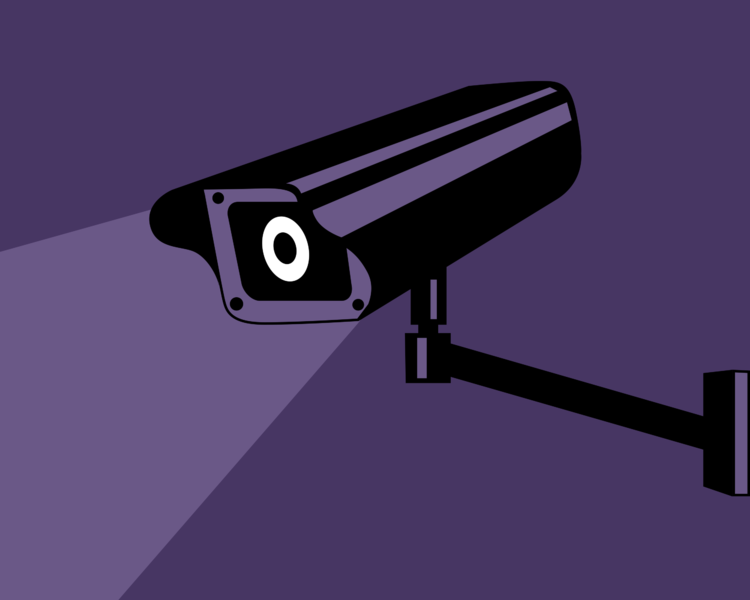OPINION: TOWN CONSIDERS SURVEILLANCE TECHNOLOGY BYLAW

Photo: wikimeida commons
by Pat De Angelis and Mandi Jo Hanneke
On May 4, we introduced to the Council a Surveillance Technology Bylaw, an entirely new bylaw that would regulate the use of surveillance technology by the Town of Amherst and its departments. We based our proposal on the ordinance that Cambridge adopted in December 2018, and recently amended to include a ban on the use of facial recognition technology. What we could not predict at that time is how important this bylaw would become in the face of the continuing unacceptable use of force against black and brown people.
We are requesting adoption of this Bylaw because we believe that use of surveillance technology in Town should be transparent. This would represent good government and be a preventative measure, more than a response to current use, of which we are unaware.
The purpose of this Bylaw is to provide for the regulation of surveillance technology acquisition or use by the Town of Amherst or the use of the surveillance data it provides. This will safeguard the right of individuals to privacy, balance the public’s right to privacy with the need to promote and ensure safety and security, and provide protocols to mitigate potential impacts on the civil rights and liberties of any individuals, communities, or groups, including race, ethnicity, religion, national origin, income level, sexual orientation, political perspective, or other marginalized communities in the Town.
It will also balance any decision to use surveillance technology with an assessment of the costs and protection of privacy, civil liberties, and civil rights, allow for informed public discussion before purchasing or using Surveillance Technology, provide for transparency, oversight, and accountability, and minimize the risks posed by use of surveillance technology in the Town.
While we have not worked with, nor spoken to it regarding this proposal, the ACLU (American Civil Liberties Union) has been encouraging local governments to adopt these policies. In addition to working closely with Cambridge, the ACLU has drafted their own proposed ordinances. They have done this because they see a disconnect between what technology allows and what residents expect with respect to privacy.
What was once impossible — the ability of a local government official to track the movement of people by the thousands in a manner which Supreme Court Chief Justice John Roberts has said is akin to a monitor on your ankle — is now easy for law enforcement to acquire. Surveillance technology has changed the balance of power between the government and the people, and we want Amherst to be open and transparent about the use of this technology here. We believe it necessary that decisions about surveillance technology be made in public and informed by a public debate. We believe these decisions must be made by elected officials, especially since the data these technologies can create is vast and potentially disclosable under public records laws.
Importantly, this bylaw prohibits the use of facial recognition technology by Town departments. Since its debut, facial recognition technology has been shown to contain built-in biases and errors that leave it prone to mis-identifying individuals who are members of many marginalized communities. This is a problem for many reasons, including increasing potential incorrect arrests and charges and lessening trust in the public safety department by people of color and others.
Too often, across the country when these technologies are adopted in secret, without robust debate about whether and how to use the tools, people with authority misuse them against marginalized communities. In the past, the Boston police department procured and used social media surveillance technology to monitor people in Boston who are not suspected of any crime but are simply Muslim or associated with the Black Lives Matter movement. Facial recognition software has been used to track protestors. We want Amherst to be transparent in the use of these technologies and we want the legislature, as the chief elected officials in Town, to be forefront in the decision on whether the use of these technologies and data outweighs the intrusions into residents’ privacy, especially in marginalized communities.
Pat De Angelis (District 2) and Mandi Jo Hanneke (At-large) are Amherst Town Councilors.

4 thoughts on “OPINION: TOWN CONSIDERS SURVEILLANCE TECHNOLOGY BYLAW”